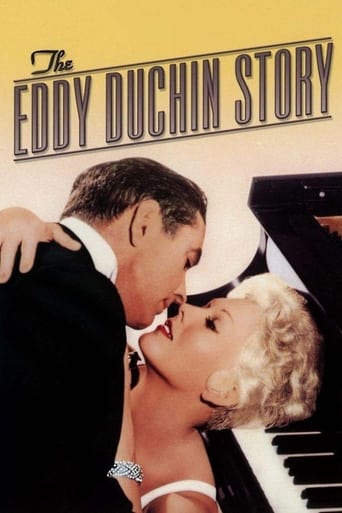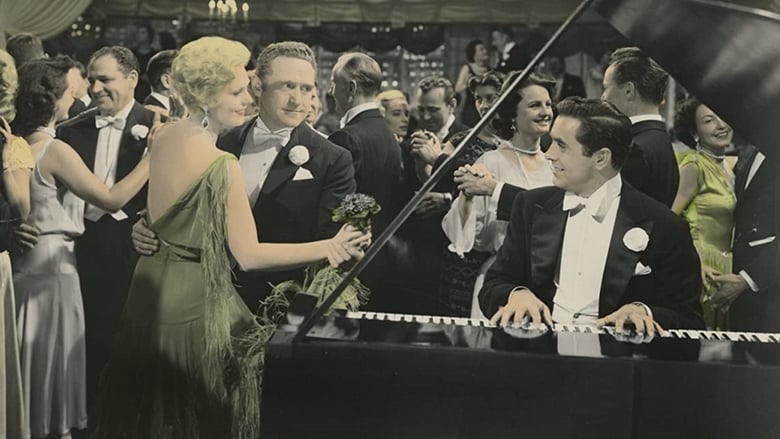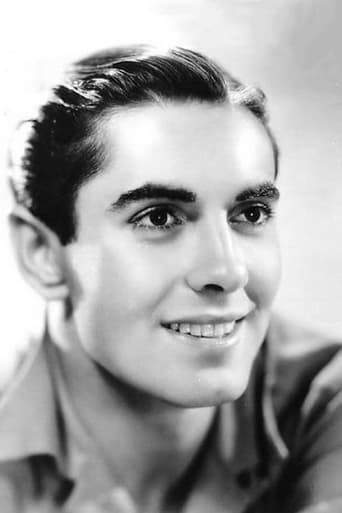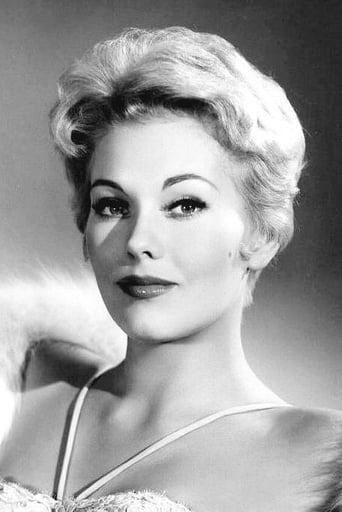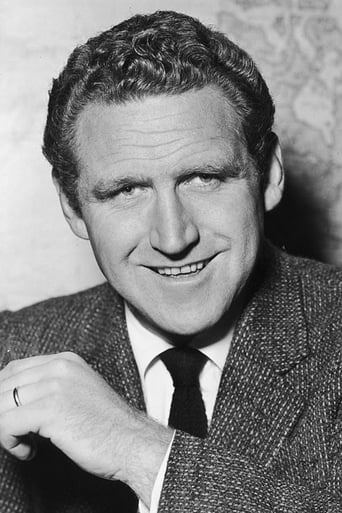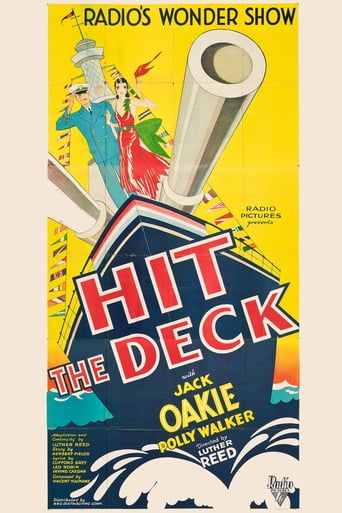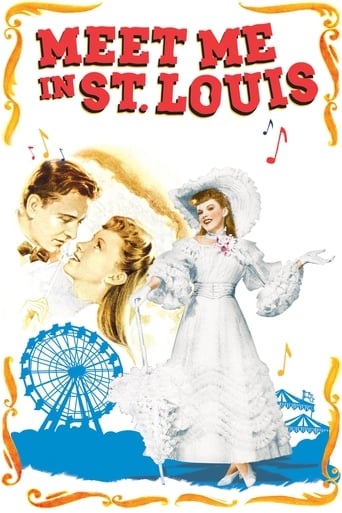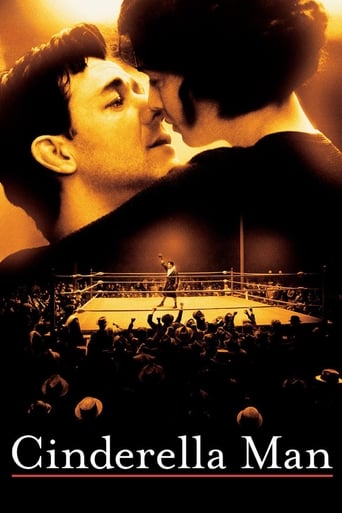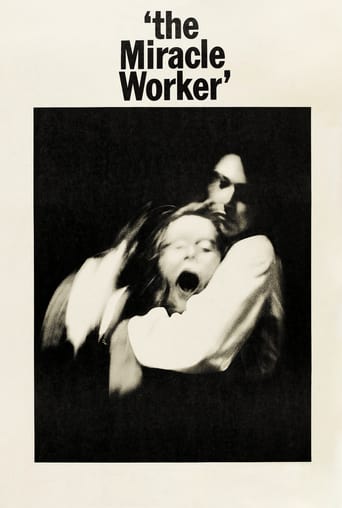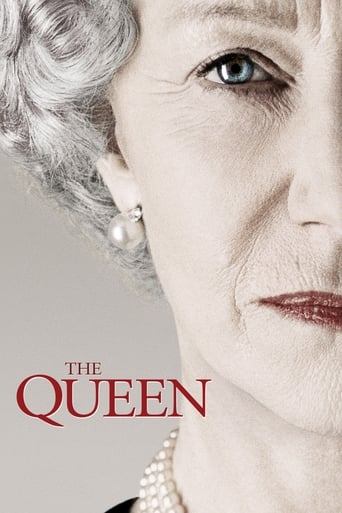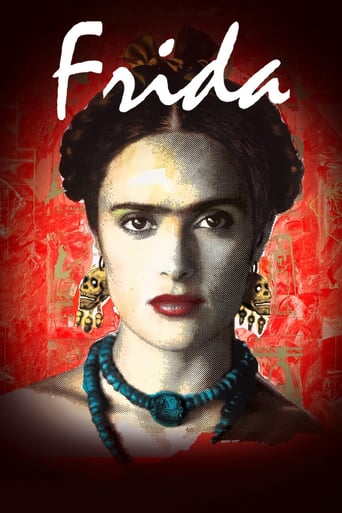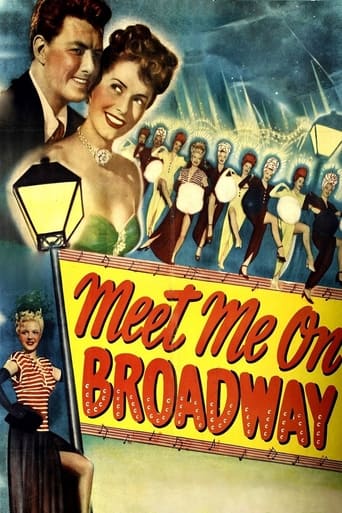The Eddy Duchin Story (1956)
The life story of the famous pianist and band-leader of the 1930s and 1940s.
Watch Trailer
Cast


Similar titles
Reviews
I expected to see a lot of hand double scenes, but the director Sydney does not let Tyrone Power cheat -- in cinema-scope, as Mr. Sydney puts in a Herculean effort to give these piano playing scenes some energy, it's clear Mr. Power must have spent weeks practicing his miming skills. Ty Power is great, as always, but he's too old for the role in the early sequences.I thought the beginning of the movie was pretty engaging. I like the period, and I enjoyed his romance with Kim Novak as a rich perfect woman. But of course, the minute she starts freaking out about how the wind terrifies her, we know she's a goner. Hollywood just does not give a leading lady such a dark side in this era, unless she's going to die or go insane. The rest of the movie stretches our sympathy for Duchin/Power as he proves a neglectful father and rather embarrassing lover.The movie is basically a big opus about a guy who used to play piano in hotel clubs. He even knew Xavier Cugat! The music is the height of cultural appropriation and corny schmaltz. The incidental characters, like Novak's aunt/uncle, appear and interact in a way that is far too functional. There's just nothing inspired here.
This is a story of a man, his music and the era when he achieved his greatest success. What we get is a lackluster movie, purportedly, the biography of pianist and bandleader Eddie Duchin whose heyday was the 1930s. Duchin was primarily a "society" favorite—his piano style and manner appealing to the upper crust patrons who were habitués of the swank venues in which he performed. Yet, the most glaring deficiency of this film is its failure to re-create the cultural energy and social vibrancy of 1930s New York City. No attempt has been made to credibly resurrect or even provide the viewer with a reasonable facsimile of the world that was Eddy Duchin's milieu. In essence, the art production is totally inept, the costumes, make-up and hair styling barely referencing the time period. Kim Novak is particularly inauthentic in both appearance and character portrayal. She couldn't get me to buy into the belief that she was the celebrity debutante and heiress, Marjorie Oelrichs. Novak's short, blonde, severe helmet hairdo is completely identifiable as her familiar 1950s screen look, seen over time in numerous films in which she appeared. Tyrone Power, as Eddy Duchin, looks weary, and he and Novak as a pair of young, madcap lovers, just don't mesh.The musical performances may be the only entertaining element in this movie, yet they can barely sustain interest in the storyline. Here we have, yet again, a film representing what movie makers were putting out in an attempt to lure the public away from their TV screens: pure 1950s Hollywood schlock.
There's no way, even suspending reality to the Nth degree, that Tyrone Power is in any way, shape or form "believable" as a fresh faced graduate of the Massachusetts School of Pharmacy. The deep, unforgiving wrinkles around his eyes make him look more like the DEAN of the school! I know that Hollywood had a bad habit (still does) of casting people up to the age of forty as teens and young adults, but Tyrone doesn't look at all "young" in this role--he was just too doggone old.And like every picture made in the era, there's no accuracy when it comes to make-up or hairstyles, either. It's a shame, too, because the costumes aren't horrible, and good hair and make-up would have helped immeasurably. Kim Novak looks like she dropped in from the Technicolor fifties! Still and all, for a schlocky, sentimental, typical-of-the-era film, it's not awful--it'll pass the time if you're in an escapist mood.
Wow, what a mix of bad and good. The good is the music and the amazing period shots of New York. The bad... well just about anything else; its all rather poorly done. The script is particularly offensive; more about that in a moment. The acting is that goofy type which is unnatural, but not quite the unnatural stage style, more of a "read to the camera" style. Novak is pretty, but moves gracelessly.The story they have chosen to tell is a simple one: we learn to love a man through his ambition, gains, losses, sorrow and regaining of humanity after the war. This is about America after the war, not some pianist. Then sorrow strikes again and he handles it so wonderfully you applaud while crying. At least that's the goal and it probably worked for most viewers when this was new and America was trying to cope with post war loss.Something closer to the real story would have made a killer movie. Duchin was made famous by his recording that was the first use of the F-work in that medium. His first wife did die, but he was hardly grief-stricken a famous womanizer. He did leave his boy with Averill Harriman's wife when he went to war. But that was because he was sleeping with her, while her husband was off in England sleeping (and finally marrying) another man's wife. The son of Winston Churchill in fact, so Harriman hardly cared about his wife's affair with a New York celebrity.Harriman was an amazing character through the period of this story. He, Dulles and Marshall shaped the world after the war in a liberal mold, essentially reforming Europe as a unit and building NATO, which for many decades was a very good thing. His presence through this movie as sort of an avuncular figure would be like having John Kennedy as a butler. The loss of the power-as-sex game and music-as-power thrust sort of waters down the whole thing.Why do I care? Because Harriman was particularly concerned about rebuilding France, a country that had humiliated itself and had no means to rebuild. It was, as now, an agricultural economy and Harriman couldn't see Americans subsidizing French farmers for decades. So he (his staff, yes Democrats) came up with the ideas of romanticizing Paris and Rome. Make them romantic cities that tourists would visit. They surely were not before the war. Paris had had its day as a center of art but never ever of romance.The plan was pulled off flawlessly, primarily through subsidies to Hollywood to make films that portrayed Paris romantically. Many of those films were from the same period of this film, an extreme irony. Extreme, you know.Harriman's first wife, the one playing with Duchin, had cheated on and left her first husband as well, an extremely wealthy fellow who just happened to be the financier of Technicolor which we find our self enjoying in this very film.Oh well, there is the music, How can you fault any film that starts with Chopin?Ted's Evaluation -- 1 of 3: You can find something better to do with this part of your life.

